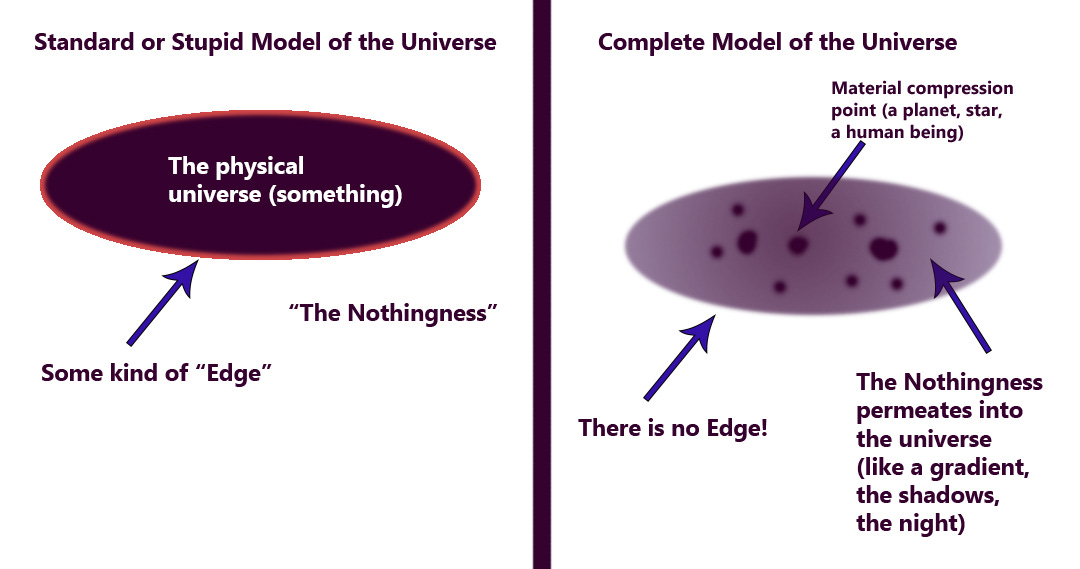This is one of those posts that will make people think I’m crazy. But I am here to solve a problem that German philosopher Immanuel Kant neglected to address. Namely, the answer to the question, “Why do all people experience time and space if time and space are supposed to be mental attributes rather than physical properties?”
The Second World War was also a philosophical war. It was a war between German Idealism and Anglo(-Saxon) Materialism. The Germans believed the world was "will and representation" (Schopenhauer). They said the material world was really mental in origin (Kant), and everything affected by God.
Materialism said that God was no longer part of the physical world. Things around us are just physical objects, unspirited, soulless. Therefore, we may harvest forests and turn the whole earth into a giant gas station. Everything has become a resource, even “human resources”. (Heidegger warned us.)
We find this distinction between material vs. mental universe even in the English word "reality" vs. the German "Wirklichkeit". The German word for reality implies an inner or deeper "workingness", i.e., a reality affected or maintained by a god.
The problem with Kant was that he claimed time and space were universal aspects of human thinking minds, i.e. a shared experience. However, he didn't explain why this would be so. He merely assumed it.
Kant’s failure to explain the problem of universal time and space led to the post-modernist idea that everything is relative. Even the way we see time and space became relative, i.e.: cultural relativism. We find this idea of cultural relativism among right-wing historians such as Oswald Spengler, too.
The solution I give is this: Yes, there is a universal experience of time and space. No, it is neither material nor mental in origin. In fact, time and space arise naturally in the absence of everything else: Time and space are attributes of the Nothingness. This is why the universe is vast and empty: A lot of space, for nothing.
I then classify material reality as compressed thought. It means the material reality we now perceive around us was once mental in origin. The universe, the galaxies, and the stars all emanate from a mental origin. This I pointed out in my book Eternal Struggle (Koenraadt, 2019).
Contrariwise, the mind is full of wandering thoughts, still uncompressed. What, then, might time and space really be? Time is the possibility of change, space is the possibility of Being, or of presence (the artist's canvas). I do not accept time and space to be individual people's imaginations that happen to be universal (perhaps due to evolution). They are rather fundaments, i.e., aspects of the Nothingness, that we (quite wrongly) perceive as entirely absent or “non-existent”.
The Nothingness does not exist outside a clearly defined membrane, the edge of the universe, that separates everything from the Nothing. No, the so-called Nothing is just as close to us as the skin on our face. It is right there, right in front of us. The Nothing is the shade and the cold, the darkness and the emptiness. But it is always with us. And it is this “nothingness”, then, that delivers us time and space, or change and presence (Being).
I solve Kant's problem, thus, by saying that the Nothingness offers us properties, such as time and space. This is possible when we assume that the Nothingness isn't just separated from the Universe by some kind of membrane ("the edge of the universe"), but rather, as in a drawing, the Nothingness is the ever-present shading. Nothingness is the shadow we cast on the wall.
Refer to the visual illustration above to explain how this might work. Galaxies, stars, and even human beings are “compressed mental matter” that now appear as material in origin. What we universally perceive as space is really the all-abound Nothingness that produces these “qualities” as a figment of our imagination.


